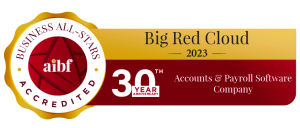Don’t sell yourself short
In our last blog post we looked at the merger and acquisition process from the perspective of the acquiring company – now it’s time to consider how to make your business an attractive proposition for potential buyers.
A purchaser will look favourably on a business which is on a strong growth path but with significant, demonstrable potential for further growth in the near future. Good quality, long term contracts with a significant amount of time to run will support the value of any business.
Make sure any outstanding legal or accounting issues (no matter how minor) are addressed before you go to the market and if you can’t do this, at least present the issues and possible solutions in a proactive manner at the outset.
Remove the roadblocks
The length of the sales process will be determined by the level of competition and whether you are helping someone to buy the business or are selling it hard into the market. In the former situation you might be dealing with one or two buyers, allowing them to get familiar with the business and proceed at their own pace.
If there are a number of potential purchasers who are keen to get the deal done you can generate some competitive tension, which will help sell the business hard into the market and create a fast paced process.
The more information you can make available the easier and quicker everything will be. However, your ability to drive a deal will be the single biggest factor in determining the length of the process. Experience counts here and while you may not have sold a business before, your acquirer may have been down this road before.
Get some help
This is just one of the reasons why entrepreneurs employ specialists to help them manage the selling process. For a business to continue to be attractive to a buyer it needs to continue to trade as normal while the deal is being finalised and if managers are involved in the process they could be distracted from the day-to-day running of the business.
One of the roles of the advisor is to communicate between the business and the prospective buyer. If the management team have to go back and forward with information and responses to follow-up queries progress will either slow down or the business will suffer.
Business specialists will know how to generate interest and can act as a buffer between buyer and seller if discussions become heated, as they often do when an entrepreneur feels their business is being under-valued. They also have a role to play in the valuation process.
Timing is everything
A detailed understanding of the financial and commercial circumstances of your business and the sector in which it operates is key to determining the right time to commence a process. A cloud-based accounts package such as Big Red Cloud will give you a good idea of what kind of shape your business is in.
And while your business might be ready to be sold, the market might not be ready to receive it – you must ask yourself who your buyer audience is and are they ready to do a deal?
Although there is little you can do about market conditions, they may look like a risk factor in a buyer’s eyes. If you can present a credible financial plan that an acquirer can fulfil, the perceived risk can be reduced.





